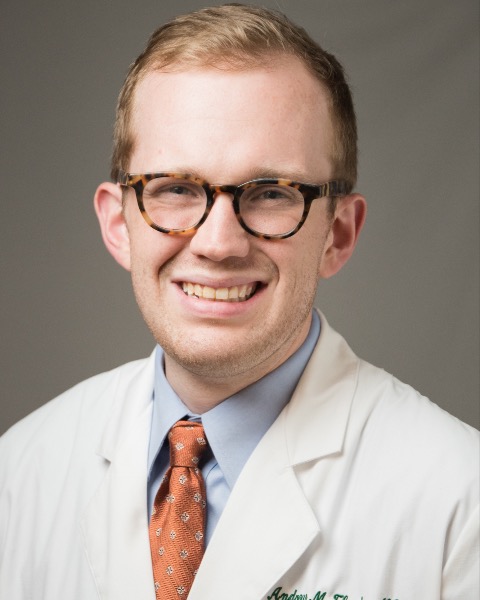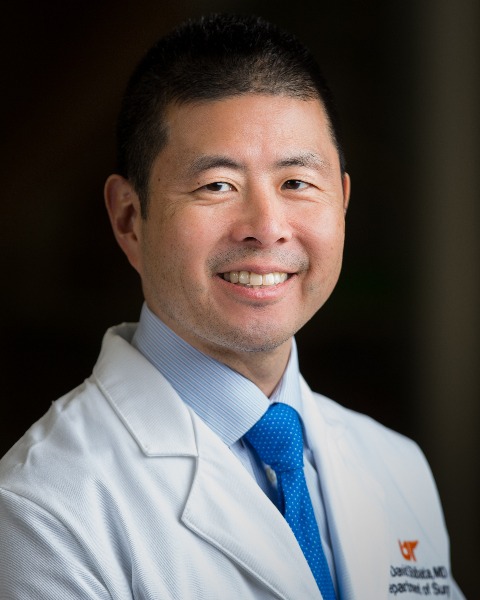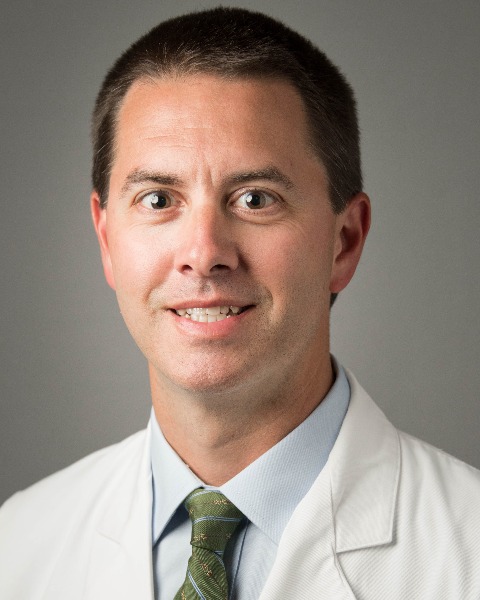Sarcoma
E423: A National Clinicogenomic Analysis of KIT Exon Mutation Profiling in Gastrointestinal Stromal Tumor

Andrew M. Fleming, MD
Surgery Resident
Department of Surgery, University of Tennessee Health Science Center
Memphis, Tennessee, United States
Andrew M. Fleming, MD
Surgery Resident
Department of Surgery, University of Tennessee Health Science Center
Memphis, Tennessee, United States
Andrew M. Fleming, MD
Surgery Resident
Department of Surgery, University of Tennessee Health Science Center
Memphis, Tennessee, United States- BJ
Benson Joseph, MD
Surgery Resident
Department of Surgery, University of Tennessee Health Science Center, United States - JH
Joshua Herb, MD, MSCR
Surgical Oncology Fellow
Division of Surgery, Department of Surgical Oncology, The University of Texas MD Anderson Cancer Center, United States - DY
Danny Yakoub, MD, PhD, FACS
Chief of Surgical Oncology
Department of Surgery, Medical College of Georgia, Augusta University, Augusta, GA, USA, United States 
Zachary E. Stiles, DO, MS (he/him/his)
Surgical Oncology Fellow
Department of Surgical Oncology, Roswell Park Comprehensive Cancer Center
Amherst, New York, United States
Evan S. Glazer, MD, PhD, FACS, FSSO (he/him/his)
Associate Professor of Surgery
Department of Surgery, University of Tennessee Health Science Center
Memphis, Tennessee, United States- IS
Ian B. Solsky, MD
Assistant Professor of Surgery
Department of Surgery, The University of Tennessee Health Science Center, United States 
David Shibata, MD, FACS, FSSO, FASCRS
Professor and Chair of the Department of Surgery
University of Tennessee Health Science Center, Department of Surgery
Memphis, TN, United States- EG
Elizabeth Gleeson, MD, MPH
Assistant Professor of Surgery
Department of Surgery, University of North Carolina, United States 
Paxton V. Dickson, MD
Associate Professor of Surgery
Department of Surgery, University of Tennessee Health Science Center
Memphis, Tennessee, United States- JD
Jeremiah L. Deneve, DO, FACS
Associate Professor of Surgery
Department of Surgery, University of North Carolina, United States
ePoster Abstract Author(s)
Submitter(s)
Author(s)
The individualized management of gastrointestinal stromal tumors (GIST) is reliant on KIT exon mutation profiling, but its uptake nationally requires further assessment. This study assessed rates of KIT exon mutation profiling and the clinical significance of KIT exon mutation status in a large national cohort.
Methods:
Patients with GIST were identified from the National Cancer Database (NCDB) from 2009-2019. The percentage of cases with KIT exon mutation profiling was calculated each year. Patients with GIST with staging data and KIT exon mutation status were selected for further analysis. Multivariable Cox regression was performed to identify exon mutations independently associated with death. Multivariable logistic regression was used to identify predictors of relevant mutations. Additional survival subgroup analysis was performed for patients with stage IV disease receiving systemic therapy.
Results:
Of 15,394 patients, 2,081 underwent KIT exon mutation profiling (13.5%). Of these, 863 exon 11 mutations (41.5%), 485 exon 17 mutations (23.3%), 132 exon 9 mutations (6.3%), and 19 exon 13 mutations (0.9%) were identified. KIT exon mutation reporting was found to be increasing over time from 3.2% in 2009 to 19.1% in 2017 (Figure 1A). On multivariable analysis, exon 9 mutations were independently associated with increased hazard of death compared to exon 11 mutations (HR 1.71; CI 1.13—2.57; P=.01). Patients with exon 9 and 11 mutations were similar in age, sex, race, comorbidities, stage, resection rates, rates of positive margins, mitotic rate, tumor multifocality, and receipt of systemic therapy. Patients with exon 9 mutations more often had small bowel primary tumors (74.2% vs. 45.8%, P< .0001). On multivariable logistic regression, only small bowel primary site was associated with exon 9 mutation (OR 4.50; CI 2.54—8.28; P< .0001) (Figure 1B). For patients with stage IV GIST receiving systemic therapy, exon 9 mutations were associated with decreased OS compared to exon 11 mutations (logrank P< .0001) (Figure 1C). In additional multivariable subgroup analyses, KIT exon 9 mutations were associated with increased hazard of death among all stage IV patients (HR 5.15; CI 1.94—13.04; P< .001) and those undergoing systemic therapy (HR 5.18; CI 1.83—13.62; P< .01).
Conclusions:
In this national cohort, most patients with GIST lacked data on exon mutation profiling, but rates have increased over time. Given the importance of exon mutation status to prognostication and treatment planning, further research is needed to assess whether expansion of KIT exon mutation profiling is warranted.
Learning Objectives:
- Upon completion, participant will be able to discuss national trends in KIT exon mutation profiling for patients with GIST.
- Upon completion, participant will be able to describe clinicopathologic factors associated with underlying KIT exon 9-mutant tumor biology for patients with GIST.
- Upon completion, participant will be able to explain the clinical impact of KIT exon 9 mutations on overall survival for patients with stage IV GIST on systemic treatment.
